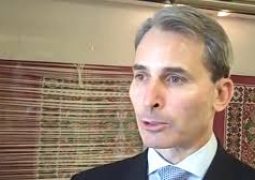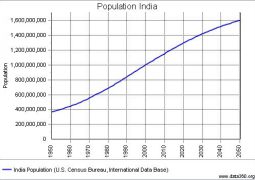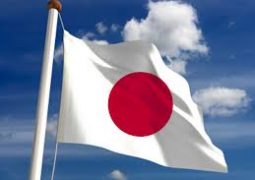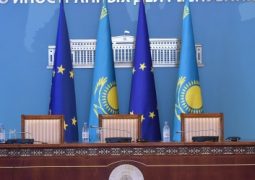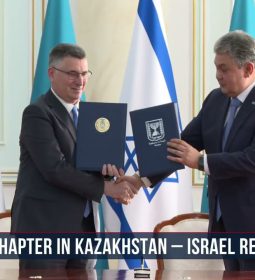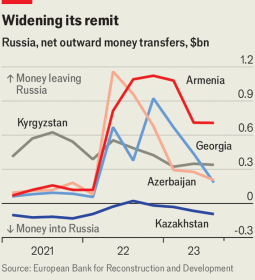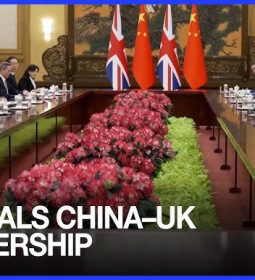For Kashmir, CPEC Highlights Divisions Will New Delhi look to bring peace to Kashmir by accepting the China-Pakistan Economic Corridor?

The disputed Kashmir region is now at the center of the ambitious China-Pakistan Economic Corridor, as the route passes through the region of Gilgit-Baltistan, part of Pakistan-administered Kashmir. India’s opposition to the CPEC is based primarily on its claim to Gilgit-Baltistan. China’s position has, however, been neutral on the matter to date; it has asked India to join CPEC and solve the Kashmir issue with Pakistan through dialogue.
CPEC, worth $56 billion, is a network of motorways, railways, hydropower, and other developmental projects that is going to give a new dimension to Pakistan’s economy and development in the coming years. The China-Pakistan relationship goes back decades, with Beijing having long helped Islamabad enrich its defense and nuclear capabilities. Between the three nuclear powers, Kashmir has been a long-standing conflict; around half-a-million Indian troops currently control the Indian side against the majority’s will.
The debate over Kashmir in relation to the CPEC started after India raised concerns that China and Pakistan were using a territory that is an “integral part” of India. However, Gilgit-Baltistan has been part of Pakistan-controlled Kashmir with minor opposition from locals. In Indian-controlled Kashmir, the view of the pro-independence leaders and the pro-India regional government is that Kashmir could become a gateway to Central Asia. The question, however, is whether the political dispute over Kashmir will be affected by the rift over CPEC continuing between India and the so-called “iron brothers,” China and Pakistan.
Enjoying this article? Click here to subscribe for full access. Just $5 a month.Can Kashmir Become Part of CPEC?
The chief minister of India-administered Kashmir, Mehbooba Mufti, raised eyebrows when she supported CPEC, saying that Kashmir could become a gateway to Central Asia. Mufti said that Kashmir could become a corridor of economic activity in the region and the country could reap the benefits of economic activities going on across the Line of Control – the de facto border between the two divided sides of Kashmir since the 1947 war between India and Pakistan.
“Why can’t we be partners in economic growth and share the benefits of projects like CPEC?” Mufti said during a seminar in New Delhi in March. “Let us move beyond skirmishes. It would make the region a hub of emerging economic opportunities leading to cooperation in trade, commerce, tourism, and adventure across the region.”
There has not been much of a debate over the impact of CPEC on the Kashmir dispute but lately some people have shown concern. Speaking at a seminar in Srinagar in March, Andrew Small, author of The China-Pakistan axis: Asia’s New Geopolitics, said that China has made it clear to Pakistan that in order for CPEC to be a success, it will require some degree of stability with its neighbors, particularly with Afghanistan and India.
Small added that as a result of this, a different set of pressures exist around CPEC. Some are coming from the Chinese side and concern how Pakistan handles certain issues of high sensitivity, including some of the Kashmiri militant groups operating off its soil and, in a certain sense, how Pakistan handles the Kashmir issue itself.
The anti-India, pro-freedom movement in Kashmir continues, with Pakistan supporting the armed groups that emerged in the late 1980s, when the armed rebellion against India began. Most of these groups are operating from Pakistan-controlled Kashmir and have lately gained massive ground in the Valley. Since the killing of iconic rebel commander Burhan Wani in last July, Kashmir has been engulfed in a mass uprising, in which at least 100 civilians have been killed and thousands more blinded and maimed. The growing demand for freedom in Kashmir and the rise of violence is concerning for China as well.
The demand for solving the Kashmir dispute is only growing, with support for dialogue between India and Pakistan pouring in from China also. During a daily press briefing, Chinese Foreign Ministry spokesperson Hua Chunying said China’s position is consistent and clear-cut on the Kashmir issue. “As a leftover issue from history between India and Pakistan, it needs to be properly settled through dialogue and consultation between the two sides. The development of the China-Pakistan Economic Corridor does not affect China’s position on the Kashmir issue,” Hua said.
However, it remains to be seen how much pressure will China like to exert on the two countries to have a meaningful dialogue over solving the decades-old Kashmir dispute. Certainly, the solution of the Kashmir dispute, where demand for freedom is gaining momentum, would have an impact on CPEC also.
India Continues to Oppose CPEC, But Kashmir Remains Aflame
In Kashmir, there is little or no support for CPEC while knowing that India will not let China’s influence over the political dispute grow. But Kashmiri experts and politicians have continuously suggested that resolving the dispute and connecting the region to CPEC could be a game-changer in South Asia and also solve the bloody conflict.
In sync with this idea, many in Pakistan also suggest that India must think of joining CPEC. Last month, while speaking at a conference in Karachi, Pakistan’s National Security Adviser (NSA) Lt-Gen (retd) Nasser Khan Janjua said that India’s inclusion in the CPEC project could lead to solving the Kashmir issue.
“If India wants to become part of the corridor, it must first step forward and resolve [the] Kashmir issue,” said Janjua. “The world must tell India to do so. The animosity has to go out of the window – for the sake of [the] well-being of the people. How long do we need to fight and struggle against the other? Before [eyeing] military and economic interest, it must see and address the human interest and resolve the Kashmir dispute.”
It was again Chief Minister Mehbooba Mufti who pitched creating a trade corridor between South Asia and Central Asia involving both Indian-controlled Kashmir and Pakistan-controlled Kashmir as its nucleus. Endorsing CPEC, she said that the oil and gas resources of Central Asia are the nearest and most economical answers to South Asian energy needs and Indian-controlled Kashmir can help foster energy cooperation in the region.
“This will create favorable conditions for Jammu and Kashmir to play its natural role of connecting the two emerging economic zones and lift itself out of political and economic fragility. Such an arrangement will supplement the China-Pakistan Economic Corridor through this part of Kashmir,” said Mufti, during a speech in state Legislative Council in last January.
However, former Indian diplomat and foreign policy expert Phunchok Stobdan says that CPEC has not become an issue between India, China, and Pakistan. He points out that only the Jammu and Kashmir chief minister has made a statement in this regard.
“I haven’t seen any one in New Delhi endorsing the point. I don’t think CPEC will be allowed to make an impact on the situation in Jammu and Kashmir. India is out rightly objecting to CPEC itself. I don’t see India joining CPEC in the present circumstance; it is even refusing to endorse OBOR [One Belt, One Road] project. It will remain an academic issue only,” said Stobdan. In fact, India did not send any official representatives to China’s high profile Belt and Road summit on May 14 to 15, largely because of its objections to the CPEC route.
But along with Small, at the seminar in Srinagar in March, Professor Siddiq Wahid, a historian and former vice-chancellor of the IUST University in Kashmir, said that the power lies within states or the empires. “We need to put the CPEC beyond India and Pakistan, and this would put Kashmir in a larger South Asian and Central Asian paradigm,” said Wahid.
“We, the people of Kashmir, Ladakh, Jammu, and Gilgit-Baltistan, are on the periphery of South Asia and Central Asia – so we have to take Jammu and Kashmir out of the India-Pakistan paradigm. I don’t want to think of Kashmir as a buffer zone because it has connotations as a shock absorber. If CPEC happens, it is we the people of Kashmir who will have control to how we create capacity.”
Despite several statements, India remains opposed to CPEC in order to oppose Pakistan and China’s growing relations. While in Kashmir, anti-India sentiment is growing at higher pace than ever before, India remains unwilling to have talks either with Pakistan or with the pro-freedom leadership based in the Valley. New Delhi continues to only use hard power to control the civilian uprising.
In the larger South Asian paradigm, China and Pakistan continue with their multibillion dollar project while India remains unable to bring calm to Kashmir. These trends together further fan the political embers between India and Pakistan, proving detrimental to any pace in South Asia.
- Previous North Korea’s New Intermediate-Range Ballistic Missile, the Hwasong-12: First Takeaways
- Next Trump and the South China Sea: Doing the Right Thing for the Wrong Reason
You may also like...
Recent Posts
- Beijing critisizes imperialistic logiv if USFrom Western Hemisphere to Persian Gulf, how the US seeks to impose hegemonic control over ‘key regions’
- Kazakhstan and Israel Agree to Deepen Cooperation
- Why India’s EU signs FTA Brahmastra deal: Paks and Bangladeshis are rattled
- “Issa” or “Taisa”, “Ittohei” or “Nitohei”: Calls to revive the ranks from imperial military days sounds lauder
- Ethiopia’s forces spar with Tigrayan’s again
- Nest is ASEAN members: Vietnam becomes EU’s first Comprehensive Strategic Partner in SE Asia
- Mercosur, India, China, now Vietnam: EU is actively working to replace US
- Malaysia seizes tankers with 512 mln. RM ($160 mln.) worth of oil
- Ukraine’s Clown keep reaping bloody harvest: 1,000 dead Ukrainian soldiers exchanged for 38 dead Russian soldiers
- Balochi Dilan Teer Bija song became chief guest at Hyderabadi shaadis – marriage ceremonies
Random news
Views
- North Korea’s New Intermediate-Range Ballistic Missile, the Hwasong-12: First Takeaways - 986 views
- Chinese military base in Djibouti necessary to protect key trade routes linking Asia, Africa, the Middle East and Europe - 978 views
- OIC, 57-nation Islamic body calls US travel ban a ‘grave concern’ - 709 views
- Goods from China start to be shipped by train to Europe: Luxembourg-Chengdu freight train route launched - 679 views
- Kyrgyzstan actively working on start of construction of China—Kyrgyzstan—Uzbekistan railroad - 588 views
- Iran tested medium-range ballistic missile - 554 views
- Why Indians want to have white skin?! Pakistani authors thoughts. Article: The complexion of a new culture - 552 views
- China: Philippines can’t claim Benham Rise - 535 views
- Gabbard allies rush to her defense after Assad meeting - 516 views
- America’s $1.1 Trillion National Security Budget - 337 views
About us

Our Newly established Center for study of Asian Affairs has
branches in Indonesia, Malaysia and Singapore, as well as freelances in some other countries.
For inquires, please contact: newsofasia.info@yahoo.com Mr.Mohd Zarif - Secretary of the Center and administer of the web-site www.newsofasia.net



